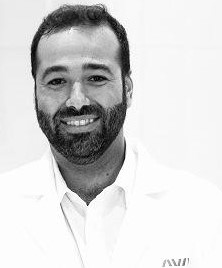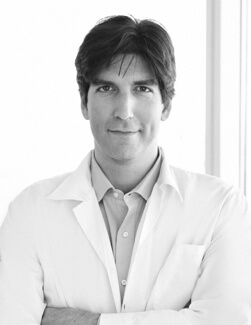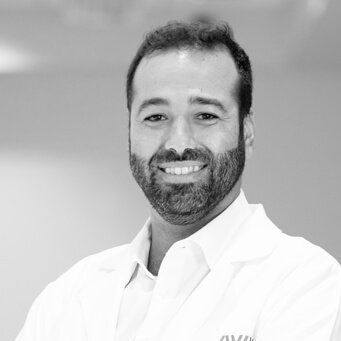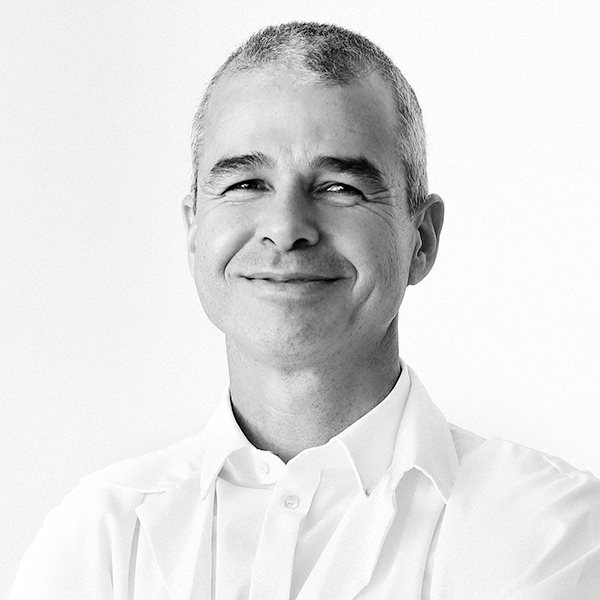
Life’s Essential 8: Heart-Healthy Behaviors and Their Impact on Aging


Five centuries ago, Ponce de León legendarily sailed to Florida seeking the mythical Fountain of Youth. Since then, many others have pursued the secret to reversing the aging process. In late 2023, a new aging study revealed a clear link between slower biological aging and cardiovascular health.
In fact, scientists have discovered that it could be possible to biologically reverse your age by up to 20 years. Part of the Fountain of Youth, it turns out, may be found in eight essential heart–healthy behaviors and factors known as “Life’s Essential 8.” By adopting these practices, you can take major steps towards not just adding years to your life, but life to your years.

Age and the Fountain of Youth
The relationship between heart health and aging reveals how maintaining strong cardiovascular health can help lower your biological phenotypic age (drinking from the Fountain of Youth) even as your chronological age increases.
What Is Meant By “Biological Age?”
You’re familiar with chronological age, which can be simply defined as the years we’ve been alive. Biological age, on the other hand, represents how well we’re aging, or the impact of the aging process on our cells and bodies. The 2023 study, which analyzed more than 6,500 adults, found that people with high cardiovascular health were biologically half a decade younger than their chronological age, while those with lower heart health were biologically about four years older.
Although there are several ways to estimate someone’s biological age, in this study, the researchers used a calculation called phenotypic age, which is also sometimes called “PhenoAge.”
What Is Phenotypic Age?
Phenotypic age is determined by combining your actual chronological age with the results of nine blood markers. Among others, these markers include white blood cell count, glucose, creatinine, and albumin. Phenotypic age “has been shown to capture morbidity and mortality risk” across many different populations, age groups, and medical conditions. In other words, it can give health providers a window into one’s risk of disease and mortality.

The Effect of Cardiovascular Health and Habits on Aging
In the study, which was presented at the American Heart Association’s Scientific Sessions, the researchers revealed the association between heart health, brain health, and biological aging. Specifically, the study found that while the average chronological age of those with high cardiovascular health was 41, their phenotypic age was calculated to be 36, an improvement of five years.
The study participants with low cardiovascular health had an average chronological age of 53. However, their average biological age was 57 — four years older.
Life’s Essential 8: Heart-Healthy Behaviors and Factors

To help measure cardiovascular health, researchers use the American Heart Association’s “Life’s Essential 8” score. This checklist of factors affecting heart health serves as a guide to slow your body’s natural aging processes.
1. Eating Better
The first essential behavior is to eat better:
- Consume plenty of fruits, vegetables, whole grains, plant-based proteins, lean animal proteins, poultry, fish, and seafood.
- Avoid trans fats and partially hydrogenated oils commonly found in fried foods and baked goods.
- Limit sweetened drinks, alcohol, added sugars, and highly processed foods. Consuming too much sugar can cause brain issues by impacting certain neurotransmitters, including dopamine, which controls moods, behavior, learning, and memory.
- Incorporating nuts and seeds into your diet can provide numerous heart health benefits.
For older adults with a greater risk of heart disease, proper nutrition is imperative. Adhering to a special diet, such as the Mediterranean-DASH Intervention for Neurodegenerative Delay (MIND) diet, can help delay or deter the onset of dementia.
Also importantly, drinking water not only prevents dehydration but also aids with digestion.
2. Doing Physical Activity
Life’s Essential 8 urges physical activity. Aim for at least 150 minutes (2.5 hours) of moderate aerobic activity or 75 minutes of vigorous aerobic exercise weekly. Incorporating strength training exercises twice a week is encouraged as well.
Exercise and heart health go hand in hand. A regular exercise routine can help lower blood pressure, reduce the risk of developing diabetes, maintain a healthy body weight, and decrease inflammation in the body.
Not only is exercise beneficial for our bodies and our oxygen levels, but it can also slow down cognitive decline. As we age, telomeres get shorter. However, studies indicate exercise can lengthen these biomarkers of aging. Exercise builds up the immune system and can lengthen our telomeres, which protect our chromosomes from degradation.

3. Quitting Tobacco
The third healthy behavior of Life’s Essential 8 is quitting tobacco use. Cardiovascular disease has been the leading cause of death in the U.S. for a century, and smoking increases that risk. Smoking affects the entire body, from the organs to the
Inhaled nicotine products are the primary cause of preventable death in America.
Quitting smoking is one of the most important actions one can take to ward off preventable death and slow down the aging process. Indeed, smoking is considered the most preventable cause of death in the country. Within 1-2 years of quitting tobacco, your heart disease risk is reduced by half.
4. Practicing Healthy Sleep Habits
The final healthy behavior is to prioritize healthy sleep habits. Insufficient sleep increases the risk of high blood pressure, cholesterol issues, obesity, cardiovascular disease, dementia, and depression. Most adults need between seven and nine hours of sleep nightly for optimal body and brain function. In fact, sleep may be just as critical as diet and exercise in the quest to live a longer, healthier life. Sleeping too much or too little can has been linked to mortality in older men and women.
Research supported by the National Institute on Aging found that “insufficient sleep may prompt biological aging.” Poor sleep may increase the risk of chronic disease because it stimulates the pathways that propel biological aging.
The top five ways to build healthier sleep habits are to exercise, avoid napping, establish a bedtime routine, turn off the TV, and cut back on caffeine and chocolates before bedtime.

We’re all aging. But are you aging well?
Take this quiz to learn if you have “super ager” potential.
5. Managing Weight
Obesity is considered an epidemic in the United States, especially for older men and women. Nearly one in four adults over the age of 51 is obese, although obesity rates do decline after age 70. The relation between obesity and aging is clear. Obesity increases with age and decreases your life span. Moreover, it affects whether your later years are spent in good health or in poor health.
Being overweight or obese can lead to chronic conditions such as heart disease, diabetes, cancer, high blood pressure, and sleep apnea, all of which accelerate our biological age.
Portion control and mindful eating are two strategies to promote a healthy weight. Interest in mindful eating has grown as a strategy to eat with fewer distractions, improve eating behaviors, and watch what we eat. However, the formula to lose weight has always been to burn more calories than you eat. Reducing caloric intake or increasing your physical activity can help you achieve this.

6. Controlling Cholesterol
Keeping cholesterol levels in check is essential to slow biological aging. According to the Centers for Disease Control and Prevention (CDC), about 86 million American adults have high or borderline high cholesterol.
There are two primary types of cholesterol. The first, low-density lipoprotein (LDL), is known as “bad” cholesterol because high levels in your bloodstream contribute to heart disease by causing plaques that can lead to heart attacks and strokes. Higher levels of high-density lipoprotein (HDL), or “good” cholesterol, can reduce those risks.
Your doctor can evaluate your cholesterol levels and guide you on understanding them and how to lower them if necessary. Although ideal cholesterol levels vary by age and gender, total cholesterol below 200 and an LDL below 100 are generally considered healthy numbers for adults. The CDC recommends that anyone aged 20 or over check their cholesterol levels at least once every four to six years.
High cholesterol can be held in check with exercise, a heart-healthy diet, not smoking, weight control and avoiding stress. When lifestyle changes do not bring cholesterol levels down, physicians may prescribe statins, a class of drugs that reduce cholesterol production.
7. Managing Glucose Levels
Blood sugar management is also vital for cardiovascular health and a younger biological age. However, “an estimated 33 percent of adults aged 65 or older have diabetes,” and half of the people diagnosed with Type 2 diabetes are over 65. Perhaps more alarmingly, the CDC estimates that more than 97 million American adults have prediabetes—more than one-third of the adult population—and only 19% of those with prediabetes are aware that they have it.
Complications associated with heart disease increase with diabetes. Diabetes can damage blood vessels, stiffening the heart, as well as cause nerve damage that may delay signals of an impending heart attack. Those with Type 2 diabetes, the most common form, are four times more likely to die from cardiovascular-related causes.
Warning signs include being thirstier and more tired than usual, fainting or dizzy spells, dry mouth, or tingling in the hands or feet. If you have diabetes or prediabetes, your doctor can easily assess your blood glucose levels and provide recommendations.
8. Maintaining Optimal Blood Pressure
Finally, optimal blood pressure is crucial for overall health and healthy aging. Blood pressure is measured using two numbers. The first number, systolic blood pressure, measures the pressure in arteries when the heart beats. The second number, diastolic blood pressure, measures the pressure in your arteries between heartbeats. Ideal readings are below 120/80.
High blood pressure, also called hypertension, can result in heart attacks, strokes, and kidney failure. An estimated “70% of Americans will have high blood pressure in their lifetimes.” While many understand the dangers of high blood pressure, only 25 percent of patients with hypertension “have their blood pressure under control.”
Older adults appear to be most susceptible to high blood pressure. The National Health and Nutrition Examination Survey found that the age group with the highest occurrence of blood pressure (63.1%) was those aged 60 and over.
Aging Better with the Aviv Medical Program

At Aviv Clinics, we believe aging is not an unavoidable descent into poor health, but instead can be managed and treated. Although Life’s Essential 8 was originally designed as a cardiac health intervention, many of the factors affecting heart health have been clinically shown to improve brain health and reduce phenotypical age.
The cutting-edge Aviv Medical Program is revolutionizing the aging process through scientifically validated therapies that can effectively mitigate the impacts of biological aging.
The Aviv Medical Program crafts a comprehensive treatment plan tailored to you, based on a physician-led evaluation of your health. Your pre-treatment evaulation may include:
- A thorough examination of your health history
- An extensive physical check-up
- Advanced brain imaging scans
- Neurological and neurocognitive assessments
- Body composition analysis
Our team of medical experts then uses your assessment results to design a personalized treatment regimen centered around your unique physiology and recovery goals.
This program has the power to transform the way we experience aging by equipping us with the necessary tools to invest in a longer, healthier life. These tools can include:
- Cognitive enhancement exercises
- Physical training and/or physical therapy
- Nutritional guidance
- An evidence-based hyperbaric oxygen therapy protocol
The holistic Aviv Medical Program builds your foundation for better aging by combining advanced supportive therapies and lifestyle modifications. Again, it’s not just about adding years to your life, but life to your years.
For more information about Aviv Clinics, view a tour of our Central Florida clinic.
Adopting These Heart-Healthy Behaviors

Remember, adopting these heart-healthy behaviors isn’t just about preventing disease—it’s about embracing a lifestyle that can help you feel more vibrant, energetic, and youthful. While the journey may seem challenging at times, each small step you take is an investment in your future health and well-being. With patience, persistence, and the right support, you can significantly improve your heart health.
Contact us today for a complimentary consultation with an Aviv Clinics physician to determine if the Aviv Medical Program can help you reach your aging goals.




